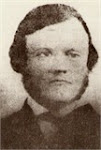
Click here to view a video promo of the Red Orchestra : the story of the Berlin underground and the circle of friends who resisted Hitler by Anne Nelson.
I heard about this book on Kathleen Dunn's show on WPR.
The show discussed what the Nazi Gestapo (guess-STOP-oh) called the Rote Kapelle (ROTE kah-PELL-uh), or Red Orchestra, an intrepid band of German artists, intellectuals, and bureaucrats who risked their lives to topple the Third Reich.
Guest: Anne Nelson, author, playwright, screenwriter, and adjunct associate professor, Columbia School of International and Public Affairs. Author, “Red Orchestra: The Story of the Berlin Underground and the Circle of Friends Who Resisted Hitler.”
The book relates the ultimately tragic tale of a resistance group inside Hitler's Nazi Germany. Several members of the group met while attending the University of Wisconsin.
Her's a link to my review on Amazon.
Addendum: Go here for brief bios of many of the main figures.
And here for more info on the "stories of people from the Midwest and Germany or Austria who encountered each other during World War II."
















I was interested by your thoughtful reaction and Amazon review of my book, Red Orchestra. I wanted to address one of your comments in particular, as to the depth of Greta Kuckhoff's Communist beliefs. I have to say that after years of exploring her published works and unpublished correspondence -- I simply don't know. So much of what she wrote was under extreme censorship. The evidence suggests that in her student days she didn't care much for the student members of the German Communist Party (KPD). Later in life she did indeed take a high position in the East German government -- but there were complicated reasons for her move to East Germany, and once she was there, everything she published was vetted by government censors. My educated guess is that, like many people, she made the most of where she found herself -- and may have talked herself out of her earlier reservations about the Communist Party. Nonetheless, it appears that she was purged from her position for political reasons.
ReplyDeleteAfter a few years of research, I found that, for my immediate purposes, the post-war "did she or didn't she" question was less interesting than the wartime humanitarian actions of her group -- which were definitely not Party-approved. The moral questions you discuss in your review are the heart of this book.
Thank you for taking the time to expand on Greta's political beliefs. (I will also admit it was a bit of a jolt to realize that the author of books I review may be reading the reviews.) A fascinating topic. I don't know that many people in the US (even in Wisconsin) are aware of this story. Here's hoping your book is widely read.
ReplyDeleteI'm currently reading Dark Star by Alan Furst, which has an interesting fictional take on Soviet intelligence operations in Germany during the pre-war and early war.
One works on a book for years, and then off it goes. When I wrote my first book (over 20 years ago), there was a raft of newspaper reviews. But with the convulsions of the newspaper industry, those reviews are disappearing. The publishers say the word about books is going online, so I decided to take a look. (Yours is the first blog I've responded to!)
ReplyDeleteAlan Furst has been an inspiration to me for years. His creation of atmosphere is unrivaled, and as I have learned more about his settings, I marvel that the research underpinnings hold firm -- though with apparent effortlessness. I originally proposed a historical novel about my topic, but my editor said no one would believe the premise. The decision to document the story as non-fiction added some six years of research and hundreds of footnotes to the process!